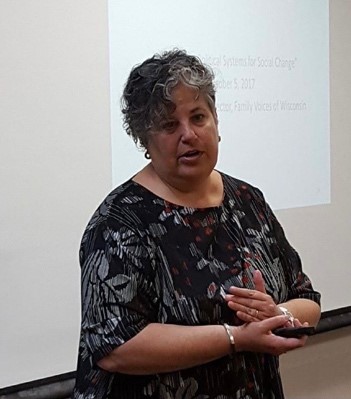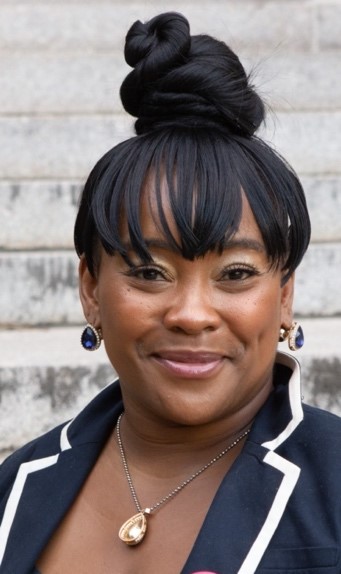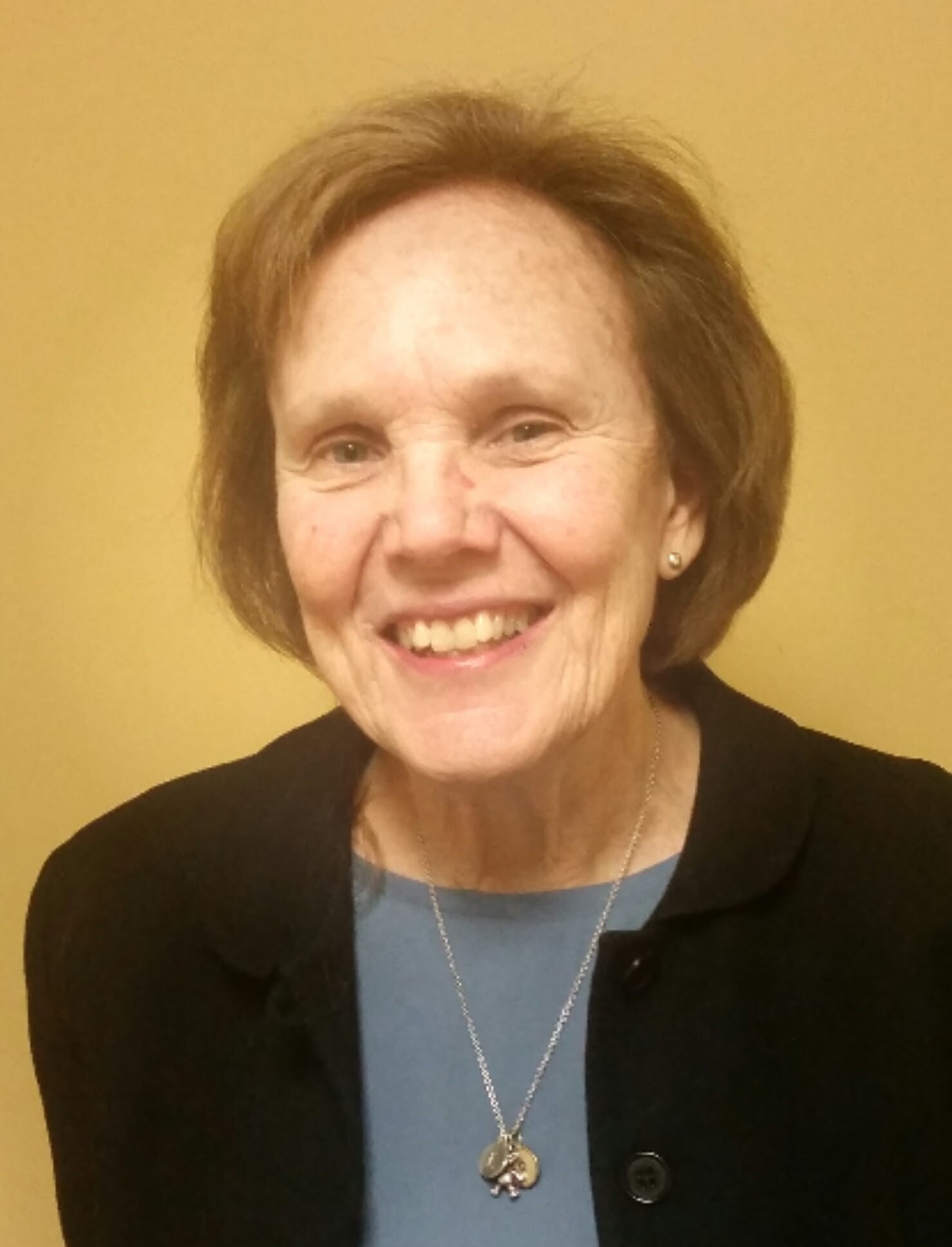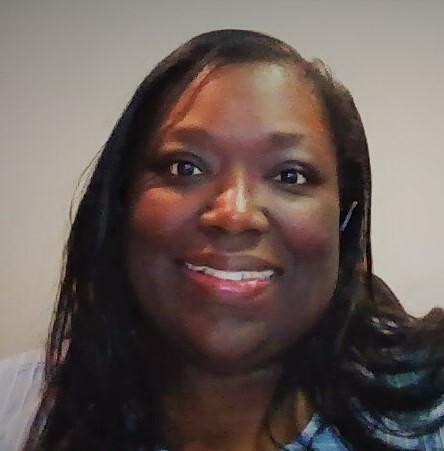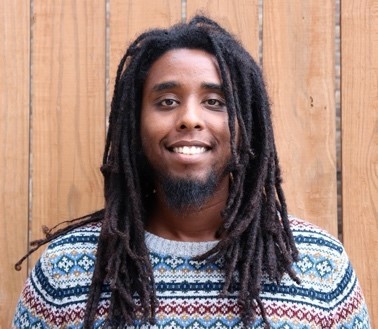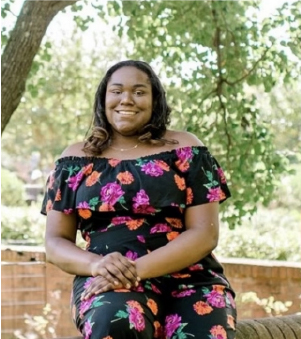
mav Vega, Grants and Contracts Manager, Family Voices
My favorite thing about being Puerto Rican is the way we love through food. There is nothing more comforting than preparing holiday specials for your loved ones like lechon, alcapurrias, pasteles, and in our home, mac and cheese and yams. However, the joy of feeding our families often comes with the pressure of having the perfect body. Our mamas, tías, and cousins – exposed to harmful beauty standards and expectations – want thinness for all of us, regardless of the cost.
The holiday season is a time for joy, celebration, and togetherness. However, for many individuals, the holidays can also bring an undercurrent of stress and anxiety, multiplied by societal pressure to conform to unrealistic beauty standards and ideals. This pressure, often referred to as fatphobia, can have a profound impact on mental health. The harms of fatphobia during the holidays can affect mental well-being.
Understanding Fatphobia
Fatphobia is the irrational fear or hatred of fatness and those who are perceived as overweight or obese. It manifests in various ways, from teasing and bullying to discrimination in various aspects of life, including employment and healthcare. During the holiday season, this toxic mindset can be particularly pronounced. The pervasive images of thin, attractive models in holiday advertisements and media coverage can reinforce the idea that being thin is a prerequisite for happiness and acceptance.
The Holiday Season and Body Image
The holiday season, with its emphasis on food and gatherings, can trigger complex emotions in individuals who experience fatphobia. For those already struggling with body image issues, the holidays can be a time of heightened anxiety. The holidays often revolve around abundant meals and special treats. While indulgence is a natural part of the holiday spirit, fatphobia can push individuals into the toxic grip of diet culture. They might feel the need to restrict themselves, leading to feelings of deprivation and guilt. These moments of “Should I grab some mac and cheese, or should I get an extra plate?” get intensified by the side eyes and small comments of “Mami, you look like you put on some weight; aren’t you watching what you’re eating?”
The constant pressure to conform to idealized body standards can lead to negative self-perception. Individuals may feel ashamed of their bodies and unworthy of enjoying the festivities. For individuals with eating disorders, the holiday season can be particularly challenging. The focus on food and family gatherings can make disordered eating behaviors worse, leading to both physical and psychological harm. Fear of commentary on their bodies, the way they eat, or how healthy other family members look in comparison, may cause some family members to opt out of attending family celebrations, intensifying the feelings of loneliness that can come with the holiday blues. The anticipation of holiday gatherings or the fear of judgment can result in higher stress and anxiety levels. The constant worry about how one looks or what they eat can overshadow the season’s joy. However, the holidays don’t have to be this way, and you can make sure your friends and family members of all sizes can feel safe and welcome in your homes this season.
Breaking the Cycle of Fatphobia during the Holidays
To combat the harmful effects of fatphobia during the holiday season, it’s essential to raise awareness and promote acceptance and inclusivity. Here are some steps we can take to make the holidays more enjoyable for everyone:
- We don’t have to talk about our bodies. It is a norm and usually accepted that we have conversations about everyone, we get nosy and indulge in this. This year keep the conversations about what people are achieving, succeeding in, and if they’re happy, and if someone mentions body size, keep the conversation moving in another direction.
- Rather than promoting fad diets or excessive exercise, focus on well-being and self-care during the holidays. Promote balanced and healthy relationships with food and exercise. If you care about your family’s physical well-being, instead of targeting family members and providing commentary (they didn’t ask for) offer a pre-dinner walk, play Nintendo sports on Switch, or break out the Wii sports for nostalgia’s sake.
- If you are concerned about health, be concerned for everyone’s health. If we discuss health during the holidays, make sure all your family members feel like they are a part of the community, they make meaningful contributions to the family, and that everyone has what they need to feel physically and mentally their best.
Fatphobia during the holidays is a pervasive issue that can have a significant impact on mental health. The pressure to conform to unrealistic body standards, along with the focus on food and gatherings, can trigger anxiety, depression, and social isolation. Remember, the size of one’s body does not indicate their health – your fat cousin may be perfectly healthy while skinnier family members struggle with sickness. To break the cycle of fatphobia, it is crucial to promote conversations that do not center on body size, reject diet culture, foster inclusivity, and support all your loved ones’ mental and physical health. By taking these steps, we can create a holiday season that brings joy, celebration, and togetherness for everyone, regardless of their body size.
Find more features from family leaders at familyvoices.org/enespanolmag.



